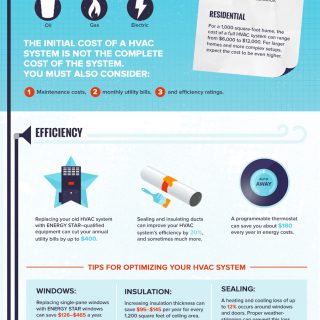Analyzing Weather'S Duty In Heatpump Performance And Recommendations For Optimization
Analyzing Weather'S Duty In Heatpump Performance And Recommendations For Optimization
Blog Article
Web Content Author-Hewitt Linnet
When it involves your heatpump, climate plays a critical role in its efficiency. From freezing temperature levels to sweltering heat, each aspect can affect how efficiently your system operates. Yet what can you do to fight these weather-related obstacles and ensure your heat pump is operating at its ideal? Keep tuned to find sensible ideas and methods to optimize your heatpump's efficiency, despite the weather conditions it encounters.
Climate Aspects Affecting Heatpump Performance
Climate factors have a considerable effect on the performance of heatpump. One essential variable is temperature level. Heatpump function by transferring warmth from outdoors to inside during winter and the other way around in summer. As temperatures decrease, it comes to be harder for the heatpump to remove warm from the outside air, minimizing its efficiency.
Another crucial element is moisture. High moisture degrees can make it much more challenging for the heatpump to launch heat during the cooling procedure.
Additionally, wind rate plays a role. Strong winds can dissipate the warm taken in or launched by the heatpump, influencing its overall performance.
Tips for Optimizing Heat Pump Efficiency
To boost the effectiveness and long life of your heatpump, carrying out a few crucial strategies can make a significant distinction in its performance.
Firstly, guarantee normal upkeep by cleansing or replacing filters every 1-3 months to stop air flow blockages and maximize air flow. Furthermore, timetable yearly professional examinations to find and attend to any type of possible issues early.
Optimal thermostat settings additionally play a vital role. Throughout the winter months, go for a temperature level setting that's as reduced as comfortable, and during the summertime, established it as high as comfy to reduce the work on your heatpump. Utilizing navigate to this website can aid you automatically change setups based on your schedule.
Moreover, sealing leaks in ductwork and insulating ducts in unconditioned rooms can stop energy loss and boost total system effectiveness.
Last but not least, think about setting up a smart thermostat that can learn your routines and readjust settings appropriately, additional enhancing your heatpump's efficiency. By adhering to these tips, you can guarantee your heatpump runs efficiently and effectively throughout the year.
Best Practices for Weatherproofing Your Heat Pump
For optimal efficiency and effectiveness of your heat pump, carrying out weatherproofing actions is vital. Begin by securing any type of gaps or splits around doors, windows, and ductwork to stop heat loss and preserve a consistent indoor temperature.
Shield revealed pipelines and ducts to prevent freezing during cold weather and guarantee correct air movement. Consider mounting a protective cover over the outside system to secure it from harsh weather aspects like snow, ice, and particles.
Frequently tidy the exterior system to eliminate dirt, leaves, and debris that can block airflow and reduce performance. Additionally, keep relevant web page around the heat pump clear of snow, ice, and vegetation to enable appropriate ventilation.
Verdict
Now that you comprehend how climate impacts your heatpump efficiency, you can take positive steps to enhance its effectiveness. By adhering to the pointers described in this short article, such as regular maintenance, thermostat changes, and weatherproofing actions, you can ensure that your heatpump operates at its ideal despite the weather. Remain successful and maintain your home comfortable all the time.
